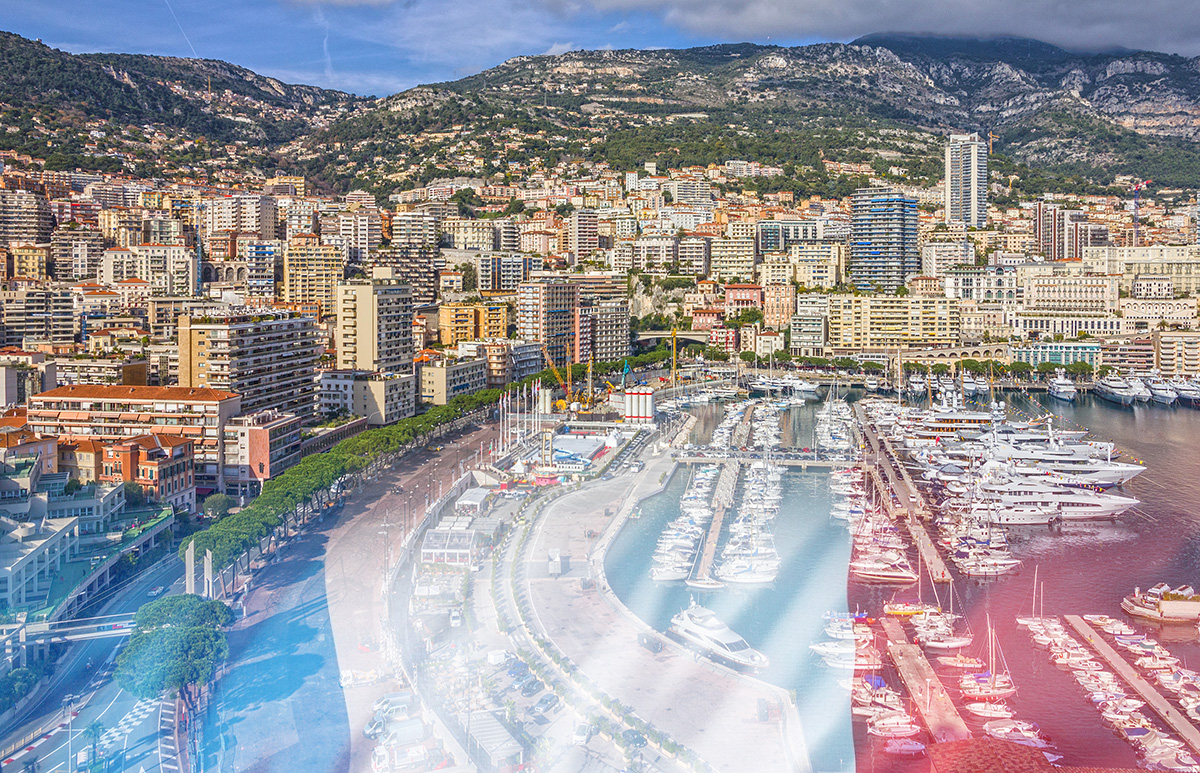The Franco-Monegasque Tax Treaty signed in Paris on 18 May 1963, no longer allows French nationals wishing to establish their tax residence in Monaco to be exempt from income tax in France.
Article 7 of the said Treaty (amended by an addendum dated 26 May 2003) states that: “French nationals who move their domicile or residence to Monaco – or who cannot prove their ordinary residence in Monaco for five years as at 13 October 1962 – will be subject in France to personal income tax and additional tax under the same conditions as if they had their domicile or residence in France.”
Two exceptions exist, however, and they concern: “Persons belonging to or under the auspices of the sovereign household, and officials, agents, and employees of the public services of the Principality who established their ordinary residence in Monaco prior to 13 October 1962.”
If tomorrow a person of French nationality decided to expatriate to Monaco and establish their tax residence there, and that person does not belong to, or is not under the auspices of the sovereign household, they would remain subject to personal income tax in France, despite their residence being established in Monaco.
If a person of French nationality residing in Monaco, who is therefore subject to income tax in France, had property in France and decided to sell it, what would be the applicable tax regime in such case?
In the event of a capital gain, would this person be taxed pursuant to Articles 150 U of the General Tax Code (GTC), or at the levy provided for in Article 244a A of the same?
This question has just been resolved by the State Council on 21 June 2021.
To understand the decision of the State Council, it is necessary to recall the facts: Two spouses (X), French nationals fiscally domiciled in Monaco, carried out two sales against payment and realised a property capital gain in 2013. These capital gains were subject to income tax and social contributions.
Spouses X requested a refund of the amount of social contributions paid. As their request did not obtain a favourable opinion by the French Revenue Service, the dispute was brought before the Administrative Court of Grenoble.
The Administrative Court of Grenoble rejected their request for the refund of the amount of social contributions paid.
Spouses X therefore decided to appeal against the decision of the Administrative Court of Grenoble, dated 28 June 2018.
The dispute was brought before the Administrative Court of Appeal (ACA) of Lyon.
The main argument of spouses X consisted in making a combined application of Article 7 of the Franco-Monegasque Treaty and Article 150 U of the GTC. According to the argument put forward by spouses X, they are taxed in France under Article 7 of the Tax Treaty between France and Monaco, and not in application of Article 4 B of the GTC.
They also argued that, with regard to this case and their situation, the taxation of the capital gain must be established pursuant to Article 150 U of the GTC, and not to Article 244a A of the GTC.
They did not want Articles 4B and 244a A of the GTC to be applied to their case, which would have a direct impact on their liability to social contributions.
Indeed, Article L.136-7 of the Social Security Code (in the version in force at the time of the taxable event) provided that: “I.- If it is paid to individuals fiscally domiciled in France, within the meaning of Article 4 B of the GTC, investment income () is subject to a contribution (). I a. – They are also subject to the capital gains contribution, taxed at the levy provided for in Article 244a A of the GTC, if the capital gains are realised, directly or indirectly, by natural persons.”
Therefore, if we interpret this article strictly, only people subject to the cited provisions (in this extract from the article: people subject to the provisions of Article 4B or 244a A of the GTC) should be subject to social contributions.
According to the judges of the ACA, if spouses X are taxed in France under Article 7 of the Tax Treaty between France and Monaco, and in application of the provisions set out in Article 150 U of the GTC, they should not be subject to contributions as provided for in Article L.136-7 of the Social Security Code.
This was the position adopted by the Lyon ACA on 14 January 2020. The opinion of the Lyon ACA (given in contradiction with the conclusions of the reporting judge) is “that in this case, spouses X (NDRL), who established their domicile in Monaco after 13 October 1962, paid, as a result of the sale on 29 November 2013 of property located at (…), the social contributions at the rate of 15.5%, for a total amount of 51,788 euros, which they requested to be returned on 30 October 2015. To justify the liability of spouses X (NDRL) to these contributions, the administration invoked I a of Article L. 136-7 of the Social Security Code, to which Articles 1600-0 D, 1600-0 F a, 1600-0 H and 1600-0 S of the GTC refer directly or indirectly. However, spouses X (NDRL), who are not fiscally domiciled in France within the meaning of Article 4 B of the GTC, but are liable to income tax in France on the sole basis of Article 7 of the Franco-Monegasque Tax Treaty, maintain, without contradiction, that the capital gain they realised on the sale of these property assets was not subject to the levy provided for in Article 244a A of the GTC, which was, moreover, not applicable in their situation. Under these conditions, spouses X (NDRL) could not be subject to social contributions on the basis of I a of Article L. 136-7 of the Social Security Code.”
An appeal was lodged by the Minister of Action and Public Accounts against this decision.
The State Council put an end to the debate in its decision No 439354, dated 21 June 2021.
In this decision, taken by the meeting of two chambers (the 3rd and the 8th), the State Council decided to annul the decision of the Court of Appeal of Lyon.
It was indeed recalled that the Court of Appeal had made an error of law in ruling as it did, since, as the State Council recalls in point 5: “Under the terms of Article L. 136-7 of the Social Security Code, in the wording applicable to the facts of the dispute: ‘I. – When it is paid to individuals fiscally domiciled in France, within the meaning of Article 4 B of the General Tax Code, investment income (…) is subject to a contribution (…). / The following are also subject to this contribution: / (…) / 2. The capital gains mentioned in Articles 150 U to 150 UC of the General Tax Code. / (…)”. By virtue of the combined provisions of this article and Articles 1600-0 D, 1600-0 H, 1600-0 F a and 1600-0 S of the General Tax Code, in the wording applicable in this case, capital gains mentioned in Articles 150 U to 150 UC of the General Tax Code and the capital gains taxed at the levy mentioned in Article 244a A of the same code are subject to the general social contribution, to the contribution to the repayment of the social debt, to the social levy, to the additional contribution to the social levy, and to the additional contribution to the solidarity levy of 2%.”
The State Council finally concluded that, with regard to these provisions: “property capital gains resulting from the sale of property located in France made by French nationals residing in Monaco and not fiscally domiciled in France, within the meaning of Article 4 B of the General Tax Code, who are subject to income tax in application of Articles 150 U to 150 UC of the General Tax Code, are also subject to the social contributions mentioned in point 5 on the basis of the provisions of paragraph 2 of I of Article L. 136-7 of the Social Security Code. Consequently, by ruling that these capital gains of these nationals could not be subject to these contributions on the basis of this article, on the grounds that these capital gains were taxable in France on the basis of Article 150 U of the General Tax Code and not on the basis of Article 244a A of the same code, the Administrative Court of Appeal committed an error of law.”
For all practical purposes, it should be remembered that this decision concerns Monegasque residents of French nationality, and not Monegasque residents who are not of French nationality.


